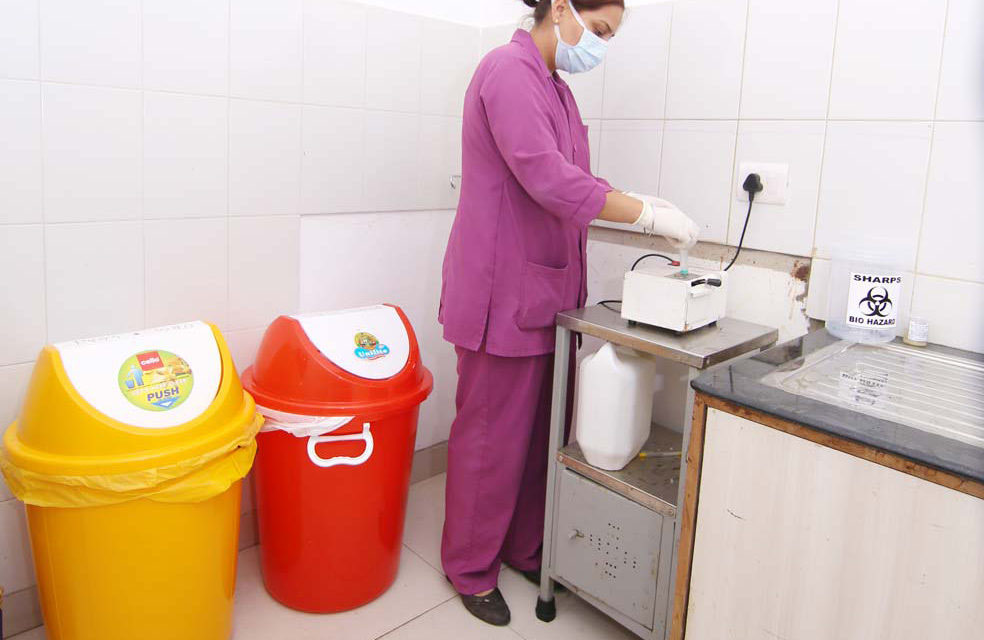Navigating Medical Waste Disposal: Necessary Services for Healthcare Facilities
Medical care facilities, whether big health centers or tiny clinics, are entrusted with the duty of handling, dealing with, and disposing of a broad selection of clinical waste streams. Comprehending the essential solutions that support clinical waste disposal is not simply a matter of conformity however likewise an essential element in securing public health and wellness and environmental well-being.
Regulatory Compliance Assistance
For health care centers, making sure governing compliance support is necessary to preserve proper handling and disposal of medical waste. Following guidelines stated by companies such as the Environmental Protection Agency (EPA) and the Occupational Safety and Health Administration (OSHA) is critical to stop ecological contamination, secure public wellness, and avoid prospective legal consequences. Regulative compliance support provides healthcare centers with support on how to effectively set apart, shop, transportation, and deal with various kinds of medical waste based on neighborhood, state, and federal guidelines. This support includes help in developing and implementing extensive waste management strategies, carrying out normal personnel training sessions, and carrying out audits to make certain recurring compliance. By partnering with regulative compliance experts, medical care facilities can stay updated on progressing policies, mitigate dangers connected with inappropriate waste disposal, and ultimately add to a safer and more lasting environment for all.
Waste Partition Guidance

Healthcare facilities should offer clear standards and training to team on just how to set apart waste efficiently. This includes separating basic waste from unsafe materials such as sharps, infectious waste, drugs, and chemical waste.
Collection and Transport Services

Correct collection and transport services are crucial parts of the clinical waste disposal process in healthcare facilities. These services guarantee that harmful materials are handled securely and in compliance with policies to protect both the atmosphere and public health. Health care facilities count on specialized waste administration companies to provide efficient collection and transportation solutions tailored to their requirements.
Medical waste collection entails setting apart various kinds of waste at the check that factor of generation, utilizing color-coded bins or bags to distinguish in between general, dangerous, pharmaceutical, and other waste streams. When collected, the waste is moved in specialized vehicles equipped to take care of unsafe materials safely.
Treatment and Disposal Solutions
In the world of clinical garbage disposal for health care centers, after the critical stage of collection and transport solutions, the focus moves towards implementing effective treatment and disposal options. Therapy solutions commonly entail procedures such as autoclaving, which uses heavy steam under pressure to sterilize the waste. This technique is generally used for infectious waste that needs to be rendered non-hazardous before disposal. Another prevalent therapy approach is incineration, where waste is subjected to heats in controlled settings to reduce its volume and remove pathogens.
Disposal options include the final action in the clinical waste management process. Reusing and resource recuperation are likewise acquiring grip as sustainable disposal choices for certain types of clinical waste materials.
Reliable treatment and disposal remedies are extremely important in guaranteeing conformity with laws and safeguarding public health and the environment. Healthcare facilities need to very carefully review and select ideal approaches that align with their waste management goals and sustainability campaigns.
Staff Training and Education And Learning

To efficiently handle clinical waste disposal in health care facilities, extensive team training and education play an important role in ensuring adherence to governing demands and maintaining a safe setting. Correct training gears up staff with the knowledge and skills needed to manage various kinds of medical waste, segregate them properly, and package them firmly for disposal. By enlightening workers on the risks connected with inappropriate handling of medical waste, facilities can minimize the chance of crashes, contamination, and regulative infractions.

Verdict
In final thought, medical care centers rely upon vital clinical waste disposal services to make sure regulative conformity, proper waste segregation, secure collection and transportation, reliable treatment and disposal, as well as personnel training and education and learning. These services play an important function in maintaining the health and wellness of both medical care employees and the general public, highlighting the relevance of correct management of clinical waste in health care setups.
For healthcare facilities, guaranteeing governing conformity assistance is important to maintain correct handling and disposal of clinical waste. Waste segregation entails classifying various kinds of medical waste to make sure proper handling, treatment, and disposal. This includes dividing basic waste from dangerous materials such as sharps, infectious waste, pharmaceuticals, and chemical waste.Medical waste collection involves segregating different kinds of waste at the factor of generation, using color-coded bins or bags to differentiate between basic, hazardous, pharmaceutical, and various other waste streams.In the world of clinical waste disposal for medical care centers, after the essential phase of collection and transport services, the emphasis shifts helpful hints towards implementing effective therapy and disposal remedies.